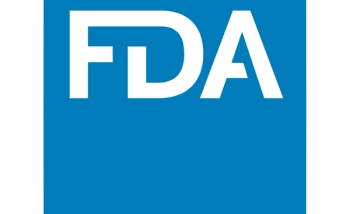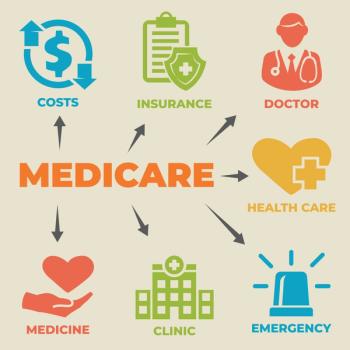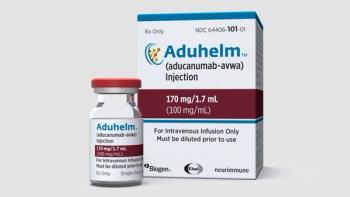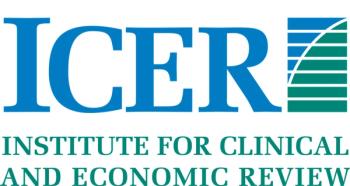
There is no lack of available COB solutions on the market, and the trouble is often identifying which option is the best fit for your organization. For optimal results, look for the following six elements in a COB solution to have the most success.

There is no lack of available COB solutions on the market, and the trouble is often identifying which option is the best fit for your organization. For optimal results, look for the following six elements in a COB solution to have the most success.

Equity is a central part of healthcare quality, but health plans often lack information on individual members’ race and ethnicity, making assessing and improving health outcomes challenging.

Spending growth sank from 9.7% in 2020 to 4.2% in 2021 as special pandemic-related programs tapered off, according to CMS actuaries. But in article published in Health Affairs they project spending growth to continue at a steady clip this decade with the country’s total spending on healthcare project to reach $6.751.5 trillion by 2030.

Kaiser Family Foundation researcher found that 26% of those with an insulin prescription who have bought health insurance coverage in the individual market would benefit from a cap of $35 on monthly out-of-pocket costs for insulin.

In this third segment of his interview with Managed Healthcare Executive®, Gorevic discusses whether Teladoc is in competition with primary care physicians, healthcare systems and CVS.

Keytruda gets another indication, the first targeted therapy for advanced prostate cancer is approved, BMS snags approval for Opdualag, the FDA misses PDUFA date for Reblozyl and issues CRLs for sintilimab and Natpara.

Summary: In this second installment of his interview with Managed Healthcare Executive®, Gorevic discusses ambitious goals for increasing per-participant, per-month revenues to $68.

In this episode of the "Meet the Board" podcast series, Briana Contreras, Managed Healthcare Executive editor, speaks with Ateev Mehrotra, a member of the MHE editorial advisory board and a professor of healthcare policy and medicine at Harvard Medical School. Mehtrotra is also a hospitalist at the Beth Israel Deaconess Medical Center in Boston. In the discussion, Contreras gets to know Mehrotra more on a personal level and picks his brain on some of his research interests including telehealth, alternative payment models and price transparency.

The longtime CEO of Teladoc discusses the company's deal with Amazon and providing telehealth services via Alexa in this first part of a three-part article series.

As the industry becomes oriented toward value-based care and its focus on high-value outcomes, utilization management must evolve to address the entire patient care journey, often across multiple episodes of care.

Data is shown in a recent American Medical Association survey, which comes as Congress recently extended the availability of telehealth for Medicare patients beyond the current COVID-19 public health emergency.

Tagged with the moniker "late retirees," this group of Medicare first-timers isn’t ready to call it quits. How can you help them? Find out below:

The proposed rules might ratchet down drug costs for Medicare beneficiaries and would set network adequacy standards.

In this final video of a two-part video series, Jason Warrelmann, global director of Healthcare and Life Sciences at UiPath, addressed why automation is necessary for patients and providers and how other healthcare organizations can better overcome the challenges of adopting automation within their health system.

A company-sponsored study found that Theranica’s digital therapeutic Nerivio resulted in a substantial reduction in intake of prescribed pharmacological medications

Court challenges on the independent dispute resolution process. A district court judge has vacated that part of the law nationwide.

But there is no significant difference in rate of hospitalization for major bleeding when Eliquis is compared with Xarelto or warfarin.

In this first of a two-part video series, Jason Warrelmann, global director of Healthcare and Life Sciences at UiPath, addressed the incline of automation in healthcare, why it's necessary for patients and providers and how other healthcare organizations can better overcome the challenges of adopting automation within their health system.


Five years ago, health care providers didn’t see mobile as a priority or a necessary tool in improving the patient experience. The pandemic changed that.

FDA approves first generic of Symbicort for asthma and COPD and first therapy for rare seizure disorder, Rinvoq and Lynparza get nods for new indications, the agency approves a new delivery system for Alzheimer’s therapy, regulators extend review for Opzelura for skin condition and issue CRL for Fasenra for chronic rhinosinusitis.

A recent survey found COVID-19 death rates among both Black and white individuals were higher in areas with more residential segregation, with Black individuals’ death rates being almost twice as high.

Del Doherty, co-founder of Prodigy Rx, discusses how the PBM aims to give payers control so they can lower costs and can improve clinical and return-to-work outcomes.

Amneal is of 35 global companies selected to manufacture and commercialize generic version of COVID-19 treatment Paxlovid.

William Dietz, MD, PhD, Professor and Director of Sumner M. Redstone Global Center for Prevention and Wellness at George Washington University, addressed to MHE the degree obesity is a risk factor at for severe COVID-19 and what those reasons are for obesity increasing the risk. This video is in correlation to Managed Healthcare Executive's March Issue cover story highlighting the dangerous pairing of COVID-19 and Obesity.

New data show longer-term benefits from Aduhelm, which was approved last year to treat Alzheimer’s disease.

ICER analyzed two therapies — Cosela and plinabulin — to prevent chemotherapy-induced neutropenia and other myelosuppressive effects. Both moderately increased quality-adjusted life-years.

ICER also reviewed, plinabulin, which is development chemotherapy-induced neutropenia (CIN) and would achieve common thresholds for cost-effectiveness if priced between $1,100 and $1,600 per dose.

Aaron Glatt, MD, Chairman of the Department of Medicine and Chief of Infectious Diseases/Hospital Epidemiologist at Mount Sinai South Nassau and Clinical Professor of Medicine at the Icahn School of Medicine at Mount Sinai, addressed to MHE the degree obesity is a risk factor at for severe COVID-19 and what those reasons are for obesity increasing the risk. This video is in correlation to Managed Healthcare Executive's March Issue cover story highlighting the dangerous pairing of COVID-19 and Obesity.

The toll that Alzheimer’s disease takes on the health of those affected by the disease is enormous. And so is the associated expense.